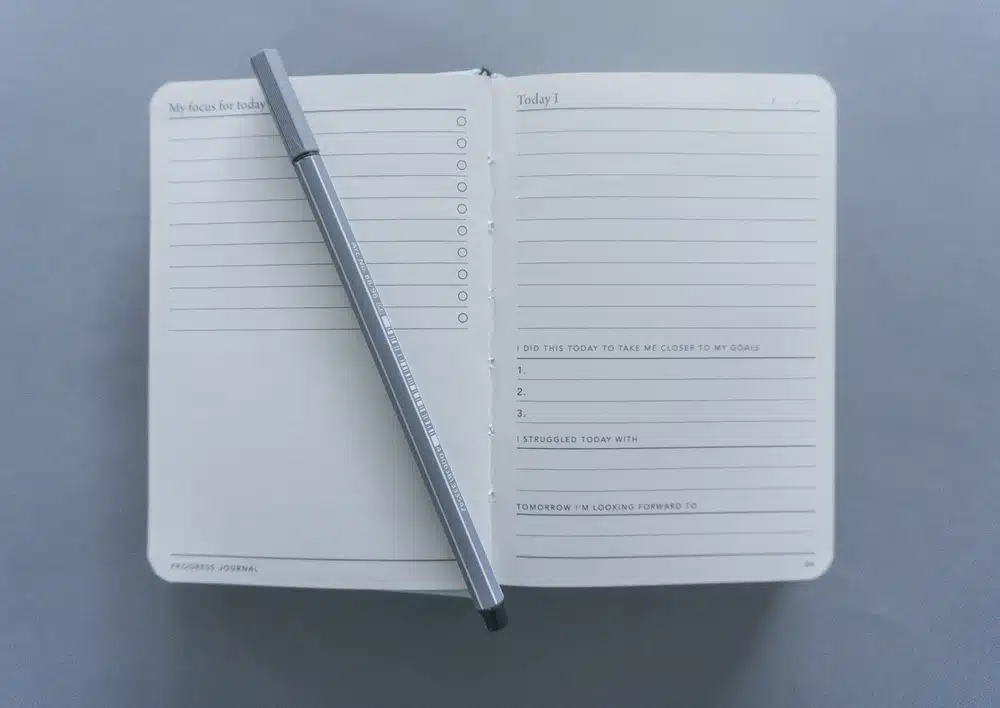
How to Prepare for the Hogan Personality Inventory Test: Practice Tests, Sample Questions, FAQs and Expert Tips
HPI stands for the ‘Hogan Personality Inventory’ test. Unlike many other hiring process assessments, the HPI is entirely centered on you and whether your core personality traits align with a company’s values and vision.
It might seem obvious but assessing one’s personality gives recruiters and employers valuable insight into how potential employees work, how they lead, and how ambitious they are. This can also glimpse if the candidate will fit well in the organizational culture and predict their future workplace performance.
The HPI uses a five-factor model of personality that was developed in the 1980s in the scope of the socio-analytical theory.
According to socio-analytic theory, how you get along with others and position yourself in social hierarchies is a vital core of your social life and personality—the HPI tests for key behavioural responses and preferences to relevant situations.
Fortunately, the HPI is not an assessment requiring large amounts of preparation, but we can guide you through how best to prepare for the assessment mentally. While the test prep industry has evolved over the years, we still recommend the JobTestPrep services and practice tests.
Table of Contents
Hogan Personality Test Overview
The HPI was developed and designed in the 1980s using Robert McCrae and Paul Costa’s Five-Factor Model of Personality traits, which they developed in the mid-20th century
This means the Hogan Assesssment Test separates candidates into five personality types while interpreting and inferring from sociology and how individuals navigate social dynamics. The HPI test engages with the basic human personality characteristic of wanting to ‘get ahead’ and showcases how individuals’ behaviour and personality might affect how they react and respond in their personal life as well as a managerial position or career.
But how does this look in a Hogan test?
The test usually takes candidates 15 to 20 minutes to complete the 220 questions. The test is written in over 40 languages, so it is accessible.
The HPI has no invasive or intrusive questions, and there are no right or wrong answers (how could you be incorrect when explaining your personality?). Many of the ‘ideal’ responses are subjective based on the nature of the role for which a candidate is being assessed.
Some companies would like a team full of ambitious and extroverted employees because they’re a sales-based business, but others might prefer introverted communicators because they’re a marketing firm. It really depends on the company and the organisation’s professional culture and social setting.
1. Five-Factor Models of Personality
The Hogan Assessment Test is measuring and scaling individuals’ tendency for these things:
- Openness – Do you show a lack of restriction, are always accessible to others, or conceal yourself and avoid contact?
- Conscientiousness – Do you do your work thoroughly and hold it to a high standard, or do you suffer little anxiety when doing the bare minimum and procrastinating?
- Extraversion – Do you like social interaction? How outgoing and lively are you? Do you consider yourself an introvert but enjoy social events and engagement?
- Agreeableness – How do you relate to others? How likely are you to put others’ needs before your own?
- Neuroticism – Do you suffer any depression, anxiety, or personality disorders? How likely is it that those conditions might affect your work and personal life?
Each person will scale their preferences between extreme ends of each of the five factors of personality. Each person possesses positive and negative aspects to their personality, and the HPI is not attempting to judge or critique your personality. The HPI measures your own individual traits and how those would complement or cause conflict in the workplace.
2. Soft Skills and Hard Skills
The HPI is sophisticated. While scaling personality, the test also measures for each person’s expression of hard and soft skills. Hard skills are also known as technical skills, but soft skills are more nuanced social skills.
Soft skills are vital for success in a career, as these are what separate and elevate individuals from others in social settings. When someone has good soft skills, they possess the following traits:
- Good Communication – Listening skills, verbal comprehension, presentation skills, negotiation tactics, writing skills, ability to read body language, etc.
- Critical thinking – Ability to make informed decisions, observation skills, creativity, innovation, research skills, adaptability, curiosity when learning, etc.
- Leadership Skills – Conflict resolution, delegation, decisiveness, giving good feedback, mentoring, motivating, supervising, facilitation, etc.
- Positive Attitude – Confidence, cooperation, courtesy, friendliness, honesty, patience, respect, enthusiasm, etc.
- Teamwork skills – Accepts feedback, is collaborative, negotiates difficult situations well, diversity awareness, empathy, emotional intelligence, interpersonal sensitivity, extroversion, etc.
- Good Work Ethic – Attentive, ethical, dedicated, independent, punctual, organised, results-oriented, reliable, works well under pressure
A person’s soft skills, hard skills, and work training are what give employers an indication of someone’s potential in their organisation.
Different Types of Questions Asked in the Hogan Tests
The HPI personality trait questions aren’t available, but we can explore the concepts the questions are based on.
As said before, the Hogan Personality Inventory Test measures one’s personality traits as well as their soft and hard skills. Below are the seven personality traits categories:
- Adjustment – can remain calm, steady under pressure, resistant to feedback
- Ambition – good team player, willing to let others lead, complacent
- Sociability – outgoing, talkative, attention-seeking
- Interpersonal sensitivity – direct and frank, ready to confront others, cold and tough
- Prudence – organised, dependable, inflexible
- Inquisitive – practical, not easily bored, uninventive
- Learning approach – interested in learning, insightful, may seem like a know-it-all
The HPI places importance on one’s personality and behaviour, but the test also probes for hard skills or occupational skills. Below are some occupational scales that may be measured.
- Stress tolerance
- Reliability
- Service orientation
- Clerical potential
- Sales potential
- Managerial or Leadership potential
It will depend on the position to determine which occupational skills are ideal. For example, an entry-level graduate position will require a different skill level than that of a person applying for a more senior role.
Another example would be if a nurse applied for a position, they would need to have high scores within the agreeable, stress tolerance and service orientation traits. But a senior manager for a large corporation may need high levels of ambition, openness and extraversion.
How Are the Questions Asked in the Hogan Assessment Test?
The HPI test makes use of ‘True or False’ and ‘Agree or Disagree’ styled questions. This allows the testers to scale and rank scores more easily.
True or False Questions
You may be told to mark a group of statements as true or false.
Below are some statements that test your openness:
- I am innovative when asked to create something new – true or false?
- I find routine claustrophobic – true or false?
- I am flexible when it comes to travelling – true or false?
Here are a few examples of some statements about agreeableness:
- I like to put other people’s needs before my own – true or false?
- I find it difficult to stand up for myself or showcase my opinions – true or false?
- If someone is looking for help, I will do what I can to assist – true or false?
Agree or Disagree Questions
Similar to true/false questions, some questions are formatted like this:
- You like to take charge – agree or disagree?
- You like to attract a lot of attention – agree or disagree?
- You make friends easily – agree or disagree?
As you’ll notice, the questions are pretty simple. That’s why it’s possible to answer 220 of them in 15 minutes. But think carefully! What is the position you’ve applied for? What person and personality does the right candidate for the job have? How can you highlight the best parts of yourself in your answers while remaining honest?
Preparation Hogan Test Tips
Here are some great ways to prepare for your HPI test:
- Review the Job Description – Look closely at the qualities and qualifications listed in the original job description post. Make a note of these, and then think about how your own soft skills are relevant to this job. Are the qualities of your extroversion, communication, critical thinking, etc., a good fit with what’s required in that role? A review of the job description can inform your answers in the HPI test. You can infer from the description the type of answers the organisation might want to see (but don’t fake it).
- Practice Tests – The HPI test itself might not be available, but there are other practice exams to work from. There are a million personality tests available online (maybe avoid the Buzzfeed ones since the HPI won’t ask what type of dog you are).
- Keep practising other tests until you feel confident with different questions – Make sure you’re answering with the job in mind. After your practice, reflect on the questions and answers, and compare them to past jobs you have had. This will inform you to answer quickly and honestly when you take the actual test.
- Ask the Recruiter Questions – It might seem frightening or out-of-line, but don’t be afraid to ask the recruiter or the employer at the organisation how relevant and important the test is in relation to the rest of the hiring process.
Asking this simple question can provide you with a clearer understanding of the value of this part of the interview process. You could even ask the recruiter/hiring manager how they will use the answers – are they only to scale applicants, or are these part of the interview process as well?
- Get a Good Night’s Rest – It might seem obvious, but like any other exam, restfulness is essential. With a clear mind, you can feel more confident about your answers. However, if you’re tired, you might be distracted, and your answers could reflect poorly on you.
- Be Early and Prepared – The Hogan Personality Inventory test is administered online. You will still need to prepare the environment where you will take the test properly. You do not want to start and then realise the Wi-Fi signal is weak. Make sure you are somewhere quiet with a strong signal. Be early or punctual so there can be no stress or tardiness affecting you.
- Avoid Distractions – A calm and relaxed approach is needed to answer these questions. If something disruptive is in the testing room with you, it won’t be an ideal way to administer the test. Your frame of mind can so easily influence your answers. The test assesses your normal personality traits, so avoid taking the test in an environment that may annoy, disrupt or stress you. Calm and quietness are key.
- Be Honest – This should go without saying, especially as you are taking a personality test about yourself to find out whether your personality matches the job.
If you feel that the answers you are giving are the truth but not satisfactory to what the hiring manager wants to see, do not lie. As we said before, lying on a job application or interview only leads to lousy sitcom plots that could have been avoided easily. Even if you think it’s less satisfactory, give truthful answers because it could determine the type of work you’re given.
- Be Realistic When Answering – A lot of the questions you will be asked will require “strongly agree”, “disagree,” or “never” answers. These scaled questions that feature absolutes (always and never) are designed to test how realistic you are about your behaviour and reveal your self-awareness. If you ‘never’ do something, this could be detrimental to the job you are applying for as it could mean you are not adaptable.
Think about the question and what the outcome of your answer might be. For example, if you say you are always punctual, this leaves no room for weakness and error. Lateness is a natural weakness. Some situations in life might mean you are late occasionally. Showing some weakness is good, as it shows you are realistic and honest.
- Get Feedback – You can always ask the recruiter, or even a previous employer, to look over your answers from previous tests so you can see them from their perspective. Maybe you never noticed a blind spot, and now you can address it.
This will also put you in a good frame of mind when thinking of your answers and make them more educated than mere guesses. You could also get feedback after the exam. You can ask either the recruiter or the hiring manager what they thought of your answers and what you can improve upon next time you take the test. It is a learning curve, after all.
FAQ – Questions About the Hogan Personality Assessment
What Is the Hogan Assessment Used For?
The Hogan test is used so employers can understand your ‘bright side personality’, which is how someone relates to someone when they’re at their best. The HPI is also a great tool to gather insight on a candidate before the hiring process, as some leadership positions will require specific qualities and personalities.
How Do You Score on the Hogan Assessment?
There are no right or wrong answers in the HPI test, so there’s no grade or percentage given. But testers use a validity scale that reveals the ‘truthfulness’ of answers. This is why it’s important to give honest answers, as fake and ‘ideal’ answers may be penalised.
Is the Hogan Assessment Test Hard?
The Hogan Assessment itself is easy to understand and answer, but any test takers struggle to identify their strengths and weaknesses. To prepare for this, we suggest doing a personal SWOT analysis of your work preferences so that you can go into the test understanding your behaviour and preferences. This will also help you have a strategy in mind, so you can answer questions about your weakness more honestly and complimentarily to you.
How Do You Ace the Hogan Test?
We recommend amble preparation and giving truthful responses to each question. This will ensure that you receive an accurate personality report and not raise any alarms when a validity report is done. Honest answers will also reveal you to be the realistic perfect candidate for the position.
How Do You Know if You’ve Passed or Failed the Hogan Personality Inventory Test?
You cannot fail a personality traits test (unless you get a Chihuahua on Buzzfeed’s Which Dog Are You quiz).
For the Hogan Assessment, you will be judged on seven scales, and rather than that being a pass or fail, you will be considered on lower or higher scored attributes. Each position will require different high and low-score attributes for each trait. Some organisations would want someone with a high sociability score (for sales positions) and a low sociability score (for low contact positions, like clerical positions).
It all depends on the company’s position and what personality they are looking for.
What does the Hogan Personality Assessment measure?
The HPI measures
- Bright Side Personality – one’s traits when they are the calmest, sympathetic and open
- Dark Side Personality – one’s traits when they are under pressure and extreme stress
- Motives, Values and Preferences Inventory – (MVPI) measures the qualities and conditions that determine and motivate your best performance
How Do You Pass the Hogan Assessment?
There are no passed or failed HPI tests. The only result is an expert’s interpretation of how your personality will suit a certain workplace environment.
You can do things to make sure you perform your best in the test, such as proper preparation, rest, and honesty.
Can You Fail the Hogan Personality Inventory Test?
You cannot ‘fail’ an HPI test, but your answers may not fit with the job description required, but it is in no way a failure.
For example, you could apply for a role that requires strong teamwork skills and receptivity to other people’s opinions. Yet, your HPI reveals you to be highly impolite and highly disagreeable. You wouldn’t enjoy this role, let alone be suitable for it.
You could use the results of the Hogan Personality Inventory Test as a method to identify the correct job roles for you.
How Much Does the Hogan Personality Inventory Test Cost?
The cost of the HPI test ranges.
The more expensive tests used by employers that gain a comprehensive insight into a candidate’s personality cost around $400 or £318. However, buying an individual Hogan Personality Inventory Test for personal insight can cost approximately $30 or £24.
How Long Does It Take To Complete Hogan Personality Inventory Test?
On average, it takes 15 – 20 minutes to complete all 220 questions in the HPI test.
Why Are Hogan Personality Inventory Tests Predictive of Future Performance?
The HPI examines how well you will relate to a specific workplace culture or environment. Each question probes into specific situations and character traits, and in the end, the test paints an accurate picture of how you might respond and react in that role.
Suppose you give (honest) answers that could indicate you would fit well within that work environment. In that case, the recruiters and employers are more likely to select your application as you’d cope well with their description of the job.
However, if your answers portray you to have a personality that will not fit with the workplace culture or the job role, it is unlikely that you will perform well in the future.
Employers regularly use the Hogan Personality Test to find candidates with the most suitable personality. This improves the hiring process, as all employed candidates complement their job position with their personality. The HPI can’t predict future workplace conflicts, but it can inform employers that some candidates are confrontational, attention-seeking, ambitious, etc. This allows employers to make informed and holistic decisions when hiring new employees.
Read also:
Sarah is an accomplished educator, researcher and author in the field of testing and assessment. She has worked with various educational institutions and organisations to develop innovative evaluation methods and enhance student learning. Sarah has published numerous articles and books on assessment and learning. Her passion for promoting equity and fairness in the education system fuels her commitment to sharing insights and best practices with educators and policymakers around the world.









